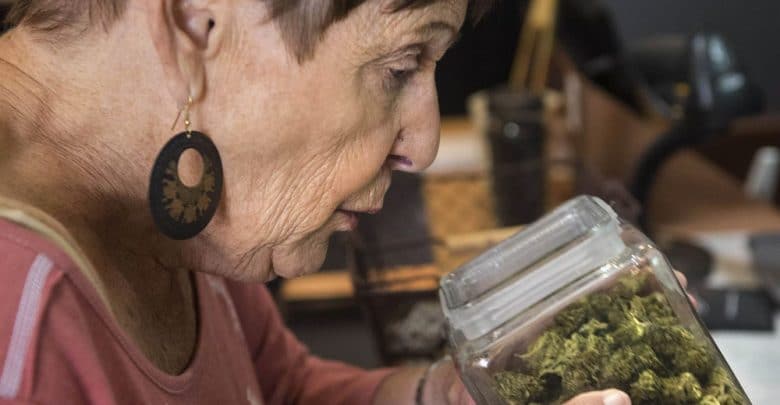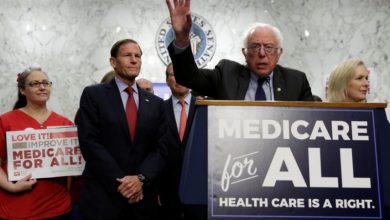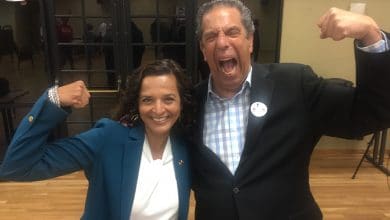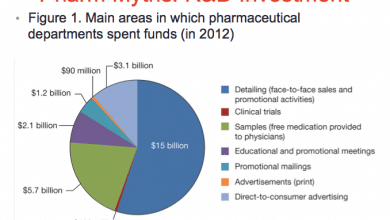Healthcare
The War on Weed is a War on Grandma
A cannabis researcher explains why Jeff Sessions’ weed memo will confuse the community most in need of cannabis products: seniors.

When Big Pharma joined police groups and prison suppliers in opposing the marijuana reform wave, it wasn’t exactly a head-scratcher. Drug companies employ thousands of scientists who understand all too well the threat that cannabis, one of the oldest and safest drugs on the planet, poses to their bosses. The industry knows that just two of the cannabinoids contained in the plant, THC and Cannabidiol, are cheap, effective and non-toxic treatments for a startlingly broad range of conditions, from chronic pain to Parkinson’s.
Many of these conditions happen to be conditions of aging. As an anti-inflammatory, cannabis helps alleviate arthritis; it also controls tremors, reduces anxiety, and fortifies bones. All of these benefits suggest cannabis as an alternative, to one degree or another, to synthetic and more costly treatments. The drug companies joined the war against medical marijuana to keep its grip on the millions of Americans who begin each day by opening a pillbox.
Given the recent surge in public awareness about the medical value of cannabis, it can be strange to see lingering ignorance of the connections between weed-reform, the needs of a growing senior population, and the prescription drug crisis.
Even the most well-intentioned and pro-reform politicians continue to see cannabis in a policy silo. This was evident in the response to Jeff Sessions’ recent memo rolling back the Obama Administration’s “hands off” approach to medical marijuana states. Jeanne Shaheen, a New Hampshire Democrat who sits on the Department of Justice funding subcommittee, tweeted in response to the memo, “I’ll work to ensure that resources are devoted to opioid response NOT foolish policy of interfering with legal marijuana production.”
This is a false dichotomy. Weed politics is opioid politics. Because cannabis is an effective medicine for pain relief, it helps people take fewer and less powerful synthetic painkillers. For similar reasons, weed politics is also benzo and muscle relaxant politics.
Many people now finding relief in cannabis are seniors whose path to accepting the medicine has not been easy; they’re fighting a mindset shaped by a lifetime under a legal system that criminalizes cannabis while positioning dangerous, extremely addictive prescription drugs as safe. By further confusing them about the law, the Sessions memo will have an insidious effect. While unable to blunt long-term momentum toward legalization, the Trump Administration can make news that muddies an already muddy policy pool. The result is more fear and stigma separating cannabis products from the population that needs them most: seniors.
Few people understand this need better than Lex Pelger, a cannabis researcher and reform advocate who has spent the better part of a decade helping seniors navigate cannabis’ medical and legal weeds. When not on the road lecturing, Pelger lives in Boulder, Co., where he writes graphic novels about the endocannabinoid system and serves as director of scientific initiatives at a leading maker of hemp extracts.
Other98 spoke with Pelger about cannabis products, the ailments of aging, and why dinosaurs like Jeff Sessions, though doomed to extinction, can still keep your grandma from getting the medicine she needs.
As someone who has worked with seniors through the policy zigzags of the last decade, what is the impact of something like the Sessions memo?
It’s huge. I get a number of calls every day from seniors asking, “Can you still ship CBD oil to my state? Am I going to get in trouble for this?” It’s too bad that they even have to think about the question. Since 2014, it’s been federally legal to sell hemp products that contain less than .3 percent THC, but there’s such a lack of knowledge and understanding that people are terrified, especially older people who are products of the Prohibition era. They see something in the news about reversing Obama’s reforms, and they get scared. It freezes people.
In my own life, I saw this with my grandmother who had Parkinson’s. If she had started taking cannabis after her diagnosis, I believe she could have gotten some more good years. But she was a child of Prohibition. Decades of bad policy and propaganda caused her to fear an ancient, non-toxic medicine. This is sadly common among seniors.
Another danger is that the administration sends signals to state attorneys general who feel emboldened to crack down, and thus generate more news stories that scare people and deepen public confusion.
Right. Look at the D.A. in Indiana, Curtis Hill, who started yanking CBD products off store shelves. It had a deep chilling effect. Even if the feds aren’t going to start knocking down doors, the Sessions order is a red flag for bullish A.G.’s and police chiefs who want to knock heads and make headlines. The memo doesn’t seem to be worrying the [cannabis] industry, but it’s a step backwards in terms of helping seniors overcome their old notions and appreciate the benefits of cannabis products for aging.
Let’s talk about those benefits. How did you come to focus on this subset of the population, and what have you learned to make you call the war on weed a “war on grandma”?
I spent many years on the road interviewing seniors about their medical cannabis use. As I began writing my books, I spent more years in the peer-reviewed literature around the human endocannabinoid system. All of this led me to the realization that cannabis is perhaps the closest thing humans have to a panacea for the many diseases of aging. The sheer expanse of such conditions is overpowering. Cannabis lowers inflammation across the body, lessening aches, migraines, neuropathy, and arthritis. It’s helpful against general pains and enhances opioid painkillers, so patients need fewer and less addictive opiates. It treats sleep apnea, raises bone density for osteoporosis and protects the GI tract. It prevents heart attacks and lessens the neurotoxicity of strokes if applied immediately. It works well for movement disorders like Parkinson’s and autoimmune disorders like Crohn’s disease. It attacks and prevents cancer by several different pathways and often eases depression. It can elevate sex drive post-menopause.
Many seniors are skittish about cannabis products, whether or not they contain THC, the psychoactive cannabinoid. How do you get around this?
It’s impossible to overstate the importance of the rise of the medical dispensary. The dispensary changed everything. It opened up a space for grandmas to get expert advice and tailor a personalized treatment regimen. It also facilitated the emergence and spread of high CBD products that are non-psychoactive.
Cannabis has always been a tricky medicine. Even before the Reefer Madness hysteria of the 1930s, variability of effects and lack of standardized products stunted its medical use. The dispensary allows older patients to talk to an expert and figure out what works for them out of the bewildering array of options.
I once worked with a feisty old lady who began her journey openly scorning cannabis as a “hippie drug.” But she was open to it, just enough. After some advice from her budtender and doctor, she discovered the sweet spot between motor control and getting “too damned stoned to play bridge.” I’ll never forget seeing her walk into a dispensary and place her order: one-quarter sativa brownie in the morning for her tremors, one-third of an indica brownie to help her sleep (and as needed throughout the day), plus some small hits of high CBD oil from her vape pen.
Everyone is different. Once you get the strains figured out, you have to tailor a plan to get the cannabis into Grandma’s system. Older patients often need two ingestion methods: a slow form for all-day protection, and a fast method for instant relief. Vaporization is the safest and fastest ingestion method for seniors. Grandma can duck into the bathroom during a bridge game when her motor control starts to slip, take one quick puff off a vape pen, and return to the table. Edibles are popular, both store-bought and homemade. With standardized products, Grandma can bake her medicine into anything she desires. Some of our older clients prefer sublingual (under the tongue) high CBD oil tabs and lozenges. Others prefer topical ointment and lotions absorbed through the skin that help with skin conditions. There are CBD pain sprays that provide instant relief.
What is it about cannabis that allows it to do so much versus other drugs?
The endocannabinoid anandamide is one of the most prevalent neurotransmitters in the brain, more so than serotonin, dopamine or any of the other sexy neurotransmitters people know about. The more you learn about the human endocannabinoid system, the more you see why cannabis is so helpful for so many things older people deal with.
The cannabis plant contains more than 100 cannabinoids, only two of which are well studied. If THC is the “stoning” molecule, then CBD is the healing molecule. It’s CBD that lowers inflammation, lessens anxiety and acts as a general homeostatic agent for the body.
It’s important for seniors to understand they don’t have to get high to enjoy these benefits. If you give them too much THC, especially an overpowering dose of edibles, they’re never going to try the medicine again. It’s a shame. So it’s better to start with CBD and topicals. It’s a gateway drug for aging cannabis users. These salves work really well for muscle and joint pain. Maybe they start with a tincture in their tea. They don’t get high, but it alleviates things.
We’re only just beginning to understand the endocannibanoid system. There’s a great deal of promise on the horizon.
Once Grandma pushes through the stigma and propaganda around cannabis, it becomes an obvious alternative, as Pelger says, to a whole litany of medicines commonly taken by senior citizens. Big Pharma has a vested interest in maintaining that stigma so that it can maintain its grip on one of the industry’s biggest cash cows: our grandparents.
But there is evidence that cannabis reform is already weakening this grip. In 2016, Dr. David and Ashley Bradford, a father-daughter research team, published data showing that states with medical marijuana laws had measurable reductions in prescribed doses of drugs falling under Medicare Part D — in other words, the drugs most commonly used by grandmas and great aunties all over the country. In particular, the data showed decreases in the use of opioids and benzodiazepines, like Xanax and Klonopin, prescribed for sleep and anxiety disorders. The trends documented by the Bradfords have since deepened, and their updated findings are currently under peer-review for publication in 2018.
Weed politics, opioid politics, senior citizens, healthcare, the justice system: all are inextricably linked. If the war on weed is a war on grandma, it’s a war on all of us, and one we need to be willing to fight.
This piece is part of the Drug Prices are Too High series, sponsored by Social Security Works. If you want to take on Big Pharma and lower drug prices, sign our petition here.







